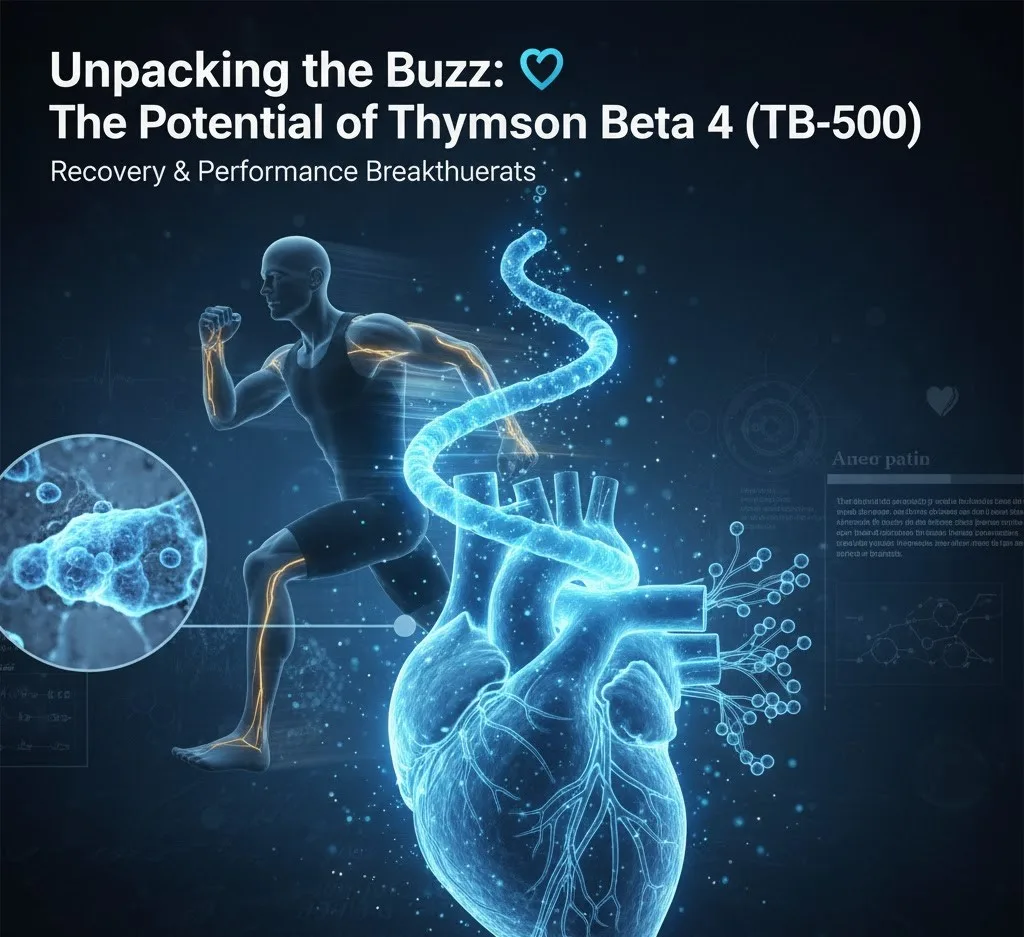Thymosin Beta 4, often synthesized and marketed as **TB-500**, is a peptide rapidly moving from the lab bench to the forefront of recovery and performance discussions. Naturally occurring in nearly all human cells, T beta 4 plays a pivotal role in fundamental processes like tissue repair and cellular migration. The enthusiasm surrounding its therapeutic potential suggests we may be looking at one of the most powerful regenerative tools available.
A Multifaceted Regenerative Compound
The claims surrounding TB-500 are expansive, painting a picture of a compound that provides comprehensive support across multiple biological systems:
-
Systemic Tissue Repair: T beta 4 is celebrated for its ability to promote the healing of tissues throughout the body, including muscle, tendons, and connective tissues. This makes it highly sought after for accelerating recovery from strenuous training and chronic injury.
-
Powerful Anti-Inflammatory Effects: The compound acts as a significant anti-inflammatory agent, which is crucial for reducing pain, swelling, and systemic stress post-injury or after intense physical exertion.
-
Angiogenesis: The Miracle of Capillary Creation: Perhaps the most remarkable action of T beta 4 is its direct promotion of angiogenesis—the creation of new blood vessels (capillaries). This is a game-changer for recovery, as increased vascularity means faster, more efficient delivery of oxygen and nutrients to damaged areas, optimizing the entire healing cascade.
Crucial Support for the Athlete’s Heart
For athletes, T$\beta$4's potential benefits extend beyond musculoskeletal recovery to an area of critical importance: cardiac health.
Emerging research has highlighted the peptide’s powerful cardioprotective effects. It has been shown to support the survival of heart muscle cells and improve cardiac function following injury. This regenerative capacity in the heart muscle makes T beta 4 a highly discussed compound for those pushing the limits of physical performance, offering a potential protective and restorative edge for the body's most vital organ.
Conclusion
The growing body of research and overwhelming positive anecdotal evidence suggests that Thymosin Beta 4 (TB-500) is more than just a fleeting trend; it represents a serious advancement in regenerative science. Its ability to accelerate repair, reduce inflammation, and enhance the body’s own healing mechanisms via angiogenesis makes it a truly compelling compound for performance, recovery, and longevity.
As with any powerful biological agent, informed use remains essential. However, the future of T beta 4 in maximizing human potential appears exceptionally bright.

